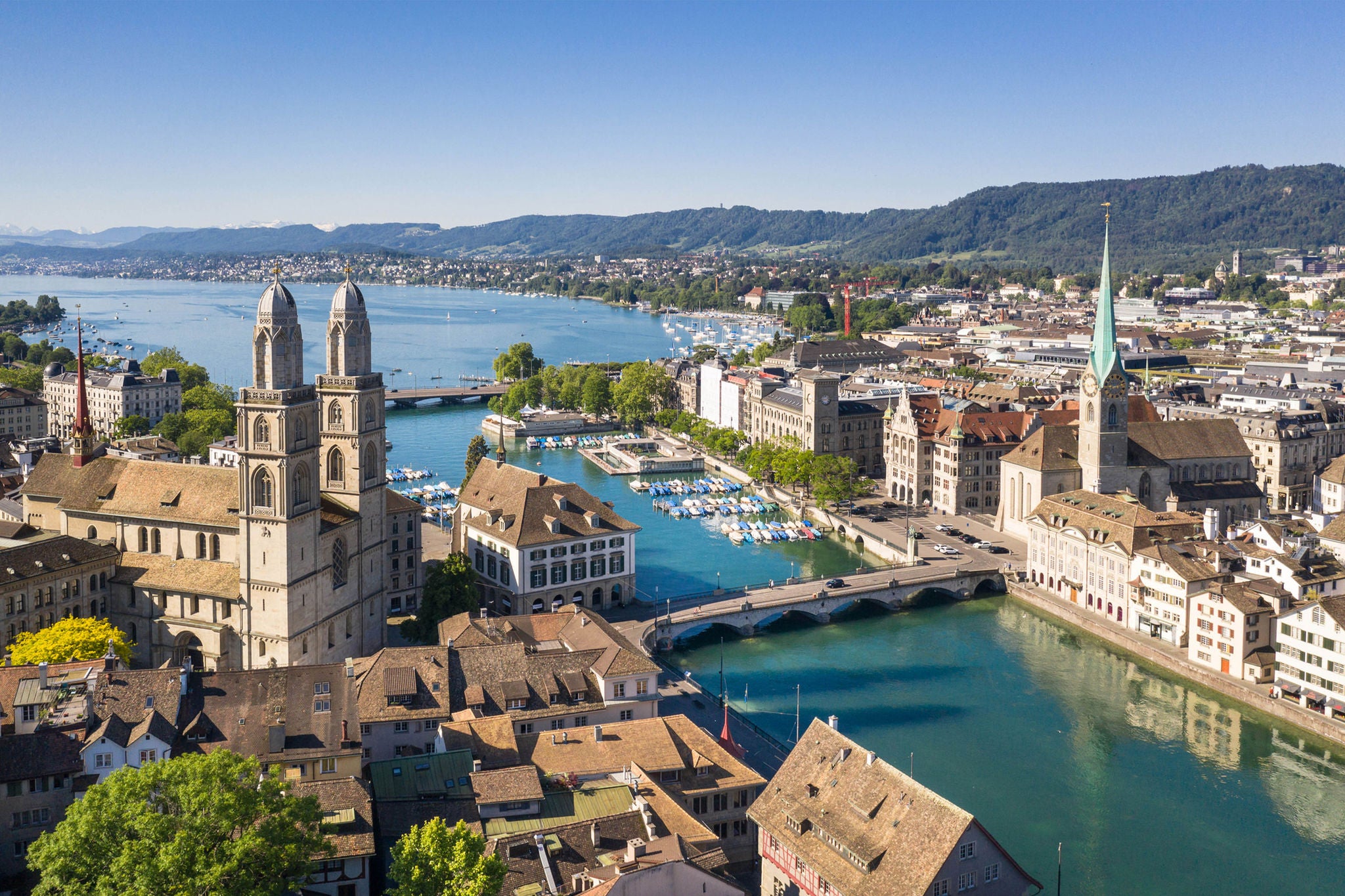EY refers to the global organization, and may refer to one or more, of the member firms of Ernst & Young Limited, each of which is a separate legal entity. Ernst & Young Limited is a Swiss company with registered seats in Switzerland providing services to clients in Switzerland.

As Zurich blazes a trail toward the circular economy, what can the rest of Switzerland learn to help the country’s transformation journey?
In brief
- On 25 September 2022, the canton of Zurich will vote on the implementation of a new article in the constitution which has the goal of fostering the circular economy within the canton
- The topic of circular economy moved to the top of political agenda in recent years and other countries have already established circular economy strategies at federal level, but there is no such legislation in Switzerland yet
- Given the key role of the private sector in a circular economy, and the benefits to be gained, companies should seek to actively understand their own circularity potential
The topic of the circular economy has moved to the top of the political agenda in recent years, as reflected in the Circular Economy Action Plan developed by the European Union (EU) and various country-specific measures and investment plans.
While other countries have already established circular economy strategies at federal level, there is no such legislation in Switzerland yet. However, the goal to revise legislation was set as part of the initiative “Reinforcing the Circular Economy in Switzerland (2020)”. The content included, amongst other things, measures to save natural resources and increase resource efficiencies, report regularly on quantitative resource goals, establish a circular economy platform, and further develop recycling and packaging collection practices[2]. In April 2022, the responsible commission applied to extend the deadline for the respective legislation[3], giving stakeholders two more years to up their game and contribute to Switzerland’s circular economy.
Spotlight on Zurich
Zurich, Switzerland’s largest city, is already several steps ahead in the journey toward a circular economy.
Zurich ranks second in the world for circular living, and third for circular systems according to the 2022 Circular Cities Barometer released by Holcim in collaboration with Bloomberg. And there’s a lot happening at political level, which could see Zurich rise even higher up the rankings in future. On the 25 September 2022, the canton of Zurich will vote on the implementation of a new article in the constitution. The proposed Art. 106a has the goal of fostering the circular economy within the canton and deals with the cantonal and municipal tasks to “create beneficial basic conditions for a considerate handling of natural resources, materials and goods, as well as the closing of material and substance flows”[4]. Furthermore, emphasis is put on the implementation of measures to avoid waste and to reuse and recycle materials and goods[5].
Just a few months prior, the city of Zurich pledged to become circular - the first in Switzerland to commit to such an ambitious target. By signing the Circular Cities Declaration, Zurich plans to systemically switch from a linear economic model towards a circular closed-loop model[6]. Currently, the city of Zurich is developing a circular strategy with detailed measures including design and production methodologies, distribution, collection schemes or recycling opportunities[7].
EY’s point of view
Population growth and the associated pressure on resources poses major challenges to policymakers, especially in the context of climate change, geopolitical unrest and fragile supply chains. The Federal Statistical Office calculated that, in a high scenario, there will be around 11.4 million people living in Switzerland by 2050[8]. Assuming that Zurich maintains its leading position in terms of inhabitants, the need for a sustainable way to meet demand will become even more urgent. This becomes even more apparent in light of Switzerland’s significant economic dependence on imports of raw materials and components and the current market conditions, which are leading to increased supply chain risks and higher prices. Against this background, the circular economy ties in seamlessly with the need to increase independence and resilience.
The issue of economic dependence – and need for more resilience in the face of various issues – is something that Swiss cities in particular need to consider. As the largest city in Switzerland, Zurich’s energy and water consumption and waste disposal approach are becoming growing challenges. By signing the Circular Cities Declaration[9], the canton of Zurich has signalled its willingness to work towards circular transformation. Following the city’s lead, smaller towns within the canton should be inspired to start establishing circular economy goals for themselves.
Home to the ETH and University of Zurich, among other institutions, Zurich stands out as a strong research and development location. Commitment to the circular economy will create new incentives for the development of new technologies, business models and ecosystems. In addition, the city will become an even more attractive place to live and work, attracting even more highly qualified personnel to stay and settle in Zurich.
When looking at Switzerland as a whole, just 12% of companies have incorporated circular activities within their business models[10]. Zurich’s proposed new article embedding the circular economy within the constitution entails little about the role of companies, and nor does the Zurich Circular Cities Declaration. Involving companies more explicitly will be an important task: a municipal ecosystem that drives circular economy has the potential to positively trigger circularity efforts of companies.We believe that Zurich’s cantonal and circularity strategy should put a special emphasis on the role of companies and have identified six key steps with an immediate and long-term positive impact:
The support of an experienced external partner can help you navigate these steps and gain insights on your journey toward circularity.
Find out more about EY Circular Economy journey
Update after the vote
On 25 September 2022, the canton of Zurich agreed to the implementation of a new article in the constitution which sets the goal of fostering circular economy within the canton. The population of Zurich overwhelmingly supported the legislation with 89.3% - this is the best result a counterproposal to an initiate has ever achieved in Zurich11.
In the next step, as mentioned in several newspapers, the canton will have to implement concrete regulations going beyond more recycling. Experts and politicians see particular potential for circularity in the construction industry to use resources and materials more carefully and to mandate circular thinking already in the design phase of projects.
Summary
The circular economy benefits everyone in society – but it also needs the support of all stakeholders to become a reality. As pressure on resources intensifies, the need for a sustainable approach is growing and becoming more urgent. Against this background, companies, municipalities, cities and cantons should seek to follow Zurich’s lead to become circular.
Acknowledgment
We thank Gloria Flik and Vincent Metzler for their valuable contributions to this article.
Related Topics
Why the Federal Council is sharpening its focus on circularity
The efficient use of resources will be anchored in the Environmental Protection Act, supporting Switzerland’s transition to a circular economy.




